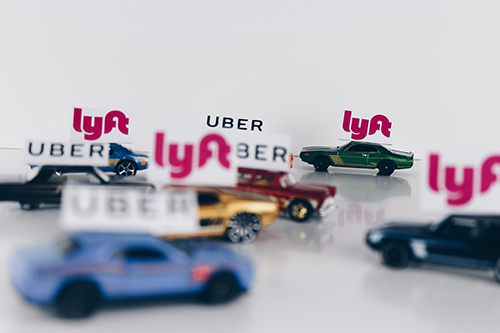 Lyft offers Medicaid Ridesharing in Six States
Lyft offers Medicaid Ridesharing in Six States
Lyft announced its Medicaid ridesharing in six different states: Arizona, Georgia, Michigan, Tennessee, Virginia, and Missouri. An average of 17% of the population in these six states is enrolled in Medicaid. “We are excited to announce our approval as an enrolled Medicaid provider in Arizona, making Lyft the first national ridesharing company to bring its non-emergency medical transportation (NEMT) services to millions of Medicaid patients,” says Lyft.
Transportation continues to be a significant barrier to care for millions of people every year. According to the National Academy of Sciences, an estimated 3.6 million Americans miss or delay medical care every year because of a lack of transportation. This is especially true for those in underserved populations who disproportionately lack access to reliable rides. The elderly, disabled, and low-income populations, are more likely to live alone and be socially isolated, without a car or in areas poorly served by public transit.
State Medicaid regulations
Arizona was the first state to revamp its Medicaid regulations. The state partnered with Uber and Lyft to make it easier for ridesharing companies to participate in its nonemergency transportation benefit. Florida and Texas governors just signed bills into law, which will allow ridesharing as a Medicaid transportation option. That service is expected to begin in early 2020. Lyft is also working with 35 other state Medicaid programs, according to LogistiCare, one of the nation’s largest Medicaid transportation brokers. With the support of both Medicaid agencies, health plans, and transportation managers, Uber and Lyft have the potential to positively impact the lives of millions of people across the country.
Typically, a traditional Medicaid transportation program requires patients to reserve rides days in advance. They often have to share a van with other patients, too. In contrast, ridesharing companies, like Uber and Lyft, need little notice and can easily take individual passengers. However, Uber and Lyft can’t handle all Medicaid transportation demands. For example, not all drivers have cars that can carry wheelchairs or those needing specialized transportation. Despite this, expanding ridesharing options substantially increases ride supply to millions of Medicaid recipients.
How do I use the Service?
Unlike typical Uber or Lyft riders, Medicaid enrollees don’t order rides on their smartphones. Instead, these patients will continue to request transportation services by phone or computer through their health plan or a Medicaid transportation broker.
Insurance
While transportation is a significant barrier, it is not the only reason why patients miss appointments. Arranging childcare is especially difficult for women. Read our post about some of the other reasons why patients “no show” for scheduled doctor appointments. Empower Brokerage wants to help you understand what coverage you need and how to take advantage of Medicaid services such as this transportation benefit. We want to help you stay on top of your health. CALL US at (844) 410-1320
Get affordable health insurance quotes by clicking here.
See our other websites:

